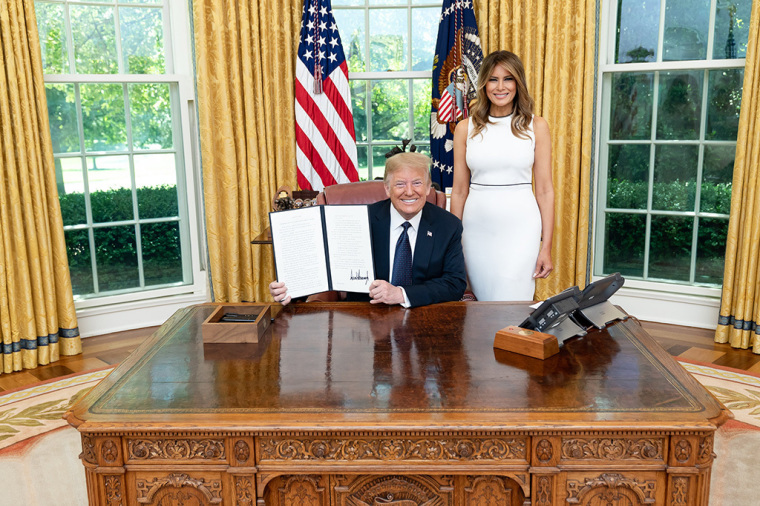Trump Signs Executive Order Strengthening Faith-Based Organization Partnerships in Foster Care

United States President Donald Trump signed an executive order seeking to strengthen the nation’s foster care system which calls on states and cities to work with faith-based and other charities at a time when organizations that uphold traditional views of marriage are facing increasing hostility from Democratic lawmakers and left-leaning groups.
More than 400,000 children are in foster care nationwide, with 124,000-plus waiting for adoption.
“Every child deserves a family. Our States and communities have both a legal obligation, and the privilege, to care for our Nation’s most vulnerable children,” the executive order reads. “… Too many young people who are in our foster care system wait years before finding the permanency of family.”
Trump’s order signed Wednesday highlights several areas of concern where the president is calling for more research and improvement by federal and state agencies, such as the need to bolster “robust partnerships” between community organizations, improve access to resources for caregivers, and improve federal oversight on welfare requirements.
Among other things, the executive order:
- Encourages “robust partnerships between state agencies and public, private, faith-based, and community organizations.” It requires the secretary of Health and Human Services (HHS) to “issue guidance to Federal, State, and local agencies on partnering with nongovernmental organizations.” It further requires the secretary to “make clear that faith-based organizations are eligible for partnerships under” federal law.
- Increases federal oversight of the foster care system and requires the HHS secretary to publish a report within one year of the “recent available counts of children in foster care” and “counts of children waiting for adoption.” The goal is to “provide increased public access to accurate, up-to-date information.” It also requires the secretary to collect information from states regarding their “strategies for coordinating with non-governmental organizations, including faith-based and community organizations.”
- Requires the HHS secretary to collect data from state and local agencies needed to preserve sibling connections and groups. It also requires the secretary to “develop data analysis methods to report on the experience of children entering care in sibling groups, and the extent to which they are placed together.”
- Requires the HHS secretary to improve access to “adequate resources for caregivers and youth” with several strategies, including the increased availability of “trauma-informed training” for all child welfare and mental health practitioners.
Children who age out of the foster care system without being adopted, the executive order says, are likely to experience major challenges in life: 50 percent are unemployed at age 24, 71 percent of women become pregnant by age 21, and 40 percent experience homelessness, according to Christian Headlines.
The executive order says several factors have contributed to children remaining in foster care too long.
“First, State and local child welfare agencies often do not have robust partnerships with private community organizations, including faith-based organizations,” it says. “Second, those who step up to be resource families for children in foster care – including kin, guardians, foster parents, and adoptive parents – may lack adequate support. Third, too often the processes and systems meant to help children and families in crisis have instead created bureaucratic barriers that make it more difficult for these children and families to get the help they need.”




No comments:
Post a Comment